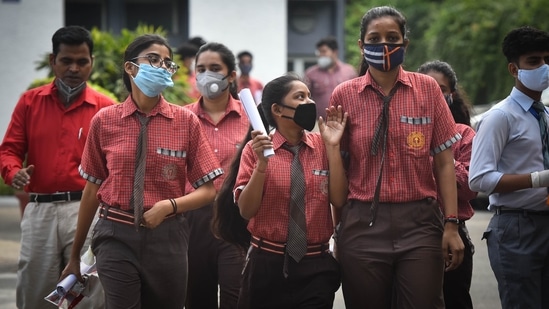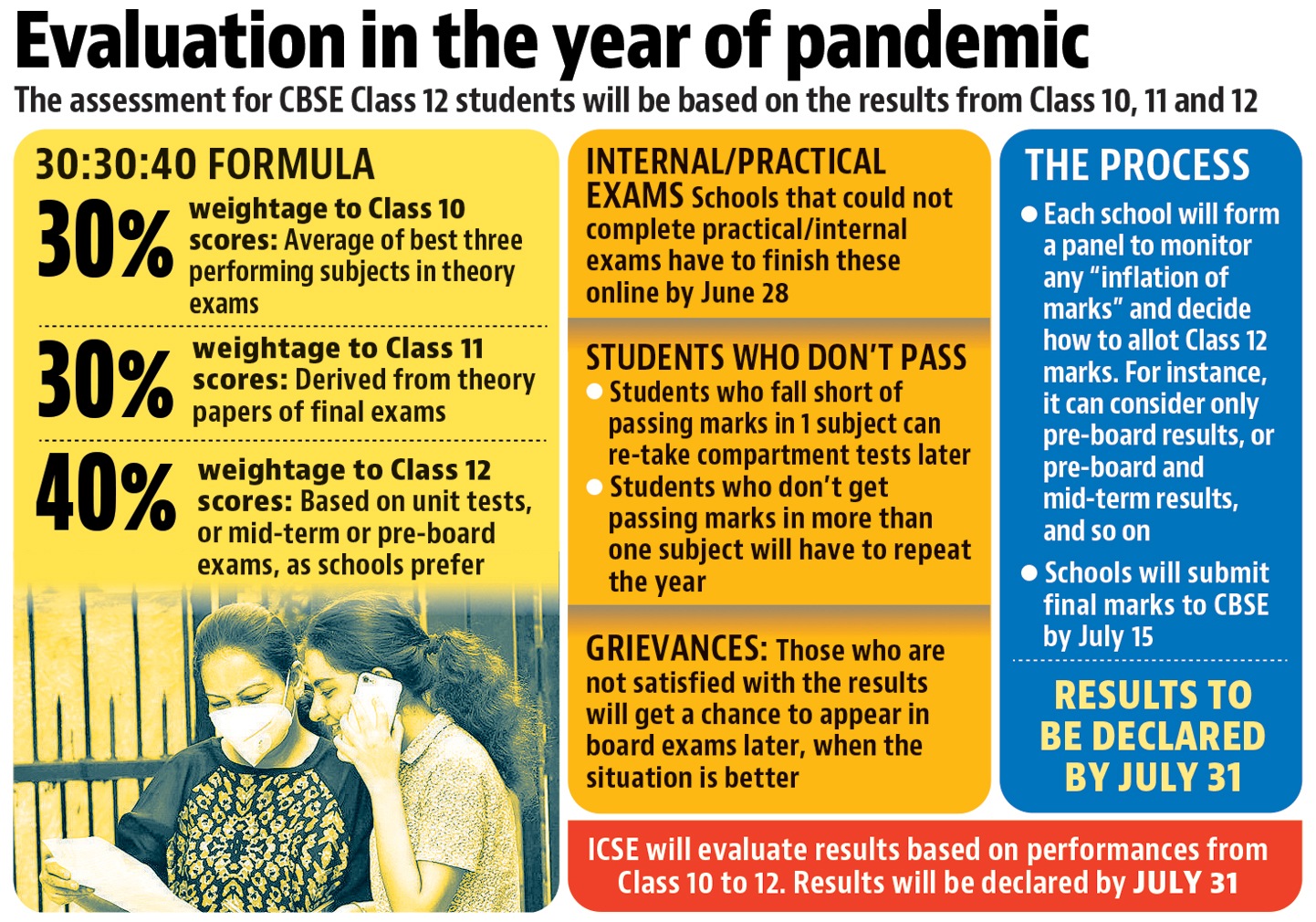CBSE Class 12 formula out, results by July 31
The approved mechanism for CBSE includes a 30:30:40 formula, which takes into account a student’s performance in the last three examinations to settle at a score for the theory component of the examination that could not be held.
The Supreme Court accepted on Thursday the formula to evaluate Class 12 students of the country’s two largest education boards – CBSE and CISCE – after the school-leaving examinations were cancelled this year due to the Covid-19 outbreak.

The approved mechanism for CBSE (Central Board of Secondary Education) includes a 30:30:40 formula, which takes into account a student’s performance in the last three examinations (the 12th pre-board, the 11th finals, and the 10th board) to settle at a score for the theory component of the examination that could not be held.
The theory portion accounts for 70% or 80% of a subject score, with the remainder coming from internal practical tests that most schools managed to complete prior to the outbreak of the second wave of Covid-19.

In the case of Council for Indian School Certificate Examination (CISCE), the formula will take into consideration the students’ Class 10 ICSE Board exam results, project and practical work in subjects, and best marks obtained in school exams in classes 11 and 12.
Both boards will also follow a score moderation policy in which individual scores will be tweaked to be in tune with a school’s past performance. CBSE will consider this on the basis of a reference year to reflect the school’s best performance in the last three years, while in the case of CISCE, it will be the school’s best performance over the last six years. CBSE and CISCE will declare results by July 31, they submitted to the bench of justices AM Khanwilkar and Dinesh Maheshwari, who asked the boards to incorporate a dispute resolution mechanism.
School administrators said the mechanisms to evaluate the students represent the best way forward during an unprecedented time.
“There were very few options available for the evaluation of Class 12 students without actually taking their exams. It was also not justifiable to evaluate students only based on Class 12 internal exams or pre-boards. Besides, if some people think that the inclusion of Class 11 marks will put students in a disadvantageous position, they should also consider that the best of three marks in Class 10 will compensate for that. Overall, the formula is student-friendly,” said Ashok Pandey, director of Ahlcon Schools in Delhi.
Some students and parents expressed concerns about the policy to consider scores from Class 11, saying that many schools have tough marking criteria in the year in order to prepare students for the board exams the next year.
Aprajita Gautam, president of Delhi Parents Association and mother of a Class 12 student, said schools must keep these factors in mind while marking students. “Class 11 students take some time to settle in with their new subjects and curriculum. Schools also do strict marking in Class 11 to prepare them for boards. Class 12 pre-boards were also conducted amid the chaos of the pandemic. These factors call for a humanitarian approach while compiling results by schools.” “The question papers for classes 11 and 12 internals are always tough. Besides, students were appearing for various competitive examinations while preparing for their pre-boards. The current evaluation pattern will put students at a disadvantage because these marks will be used for our higher education prospects as well,” said Riya Chauhan, 17, a Class 12 student at Modern Public School in Shalimar Bagh. During Thursday’s hearing, the court said: “We make it clear that the concerned Boards may formulate the final scheme on the above lines and include the two suggestions given by the Court, which may then be notified.”
Applying this rule, each school will form a five-member Results Committee with the principal, two senior-most teachers of Class 12 of that school, and two teachers of Class 12 from a neighbouring school. The CBSE scheme was devised by a 13-member expert panel, and the CISCE scheme was formulated by a nine-member committee.
Both schemes provided for an option for students to appear in a physical exam. CBSE, which caters to 1.45 million Class 12 students, did not specify a date for holding the exam. Attorney general KK Venugopal told the court that it was hard to lay down a time limit. “The examination is to be conducted when conditions are conducive. That depends on Covid-19 vanishing from India,” he said.
The bench said, “Most students will be happy with the scheme but some outer limit must be provided for students who want to take this examination. This can be subject to situation prevailing then.”
The petitioner, Mamta Sharma, accepted the schemes of CBSE and CISCE, and supported the suggestions made by the court. The lone voice of dissent came from Uttar Pradesh Parents Association, which challenged the decision to cancel the examinations when conditions were conducive for holding it physically.
Association counsel, senior advocate Vikas Singh, cited the example of Common Law Aptitude Test (CLAT) being conducted physically.
 Get alert on your mobile and email as soon as the result is declared. For this, please provide information.
Get alert on your mobile and email as soon as the result is declared. For this, please provide information. 





